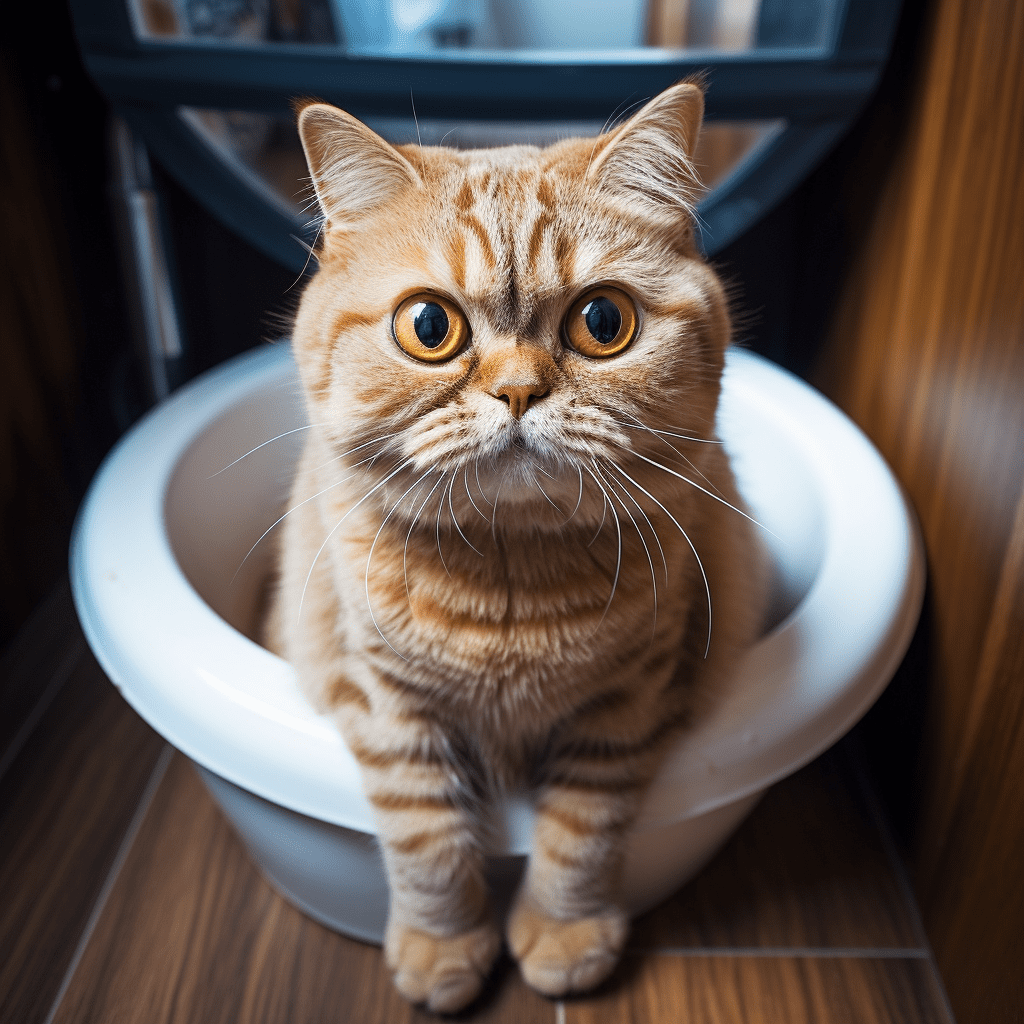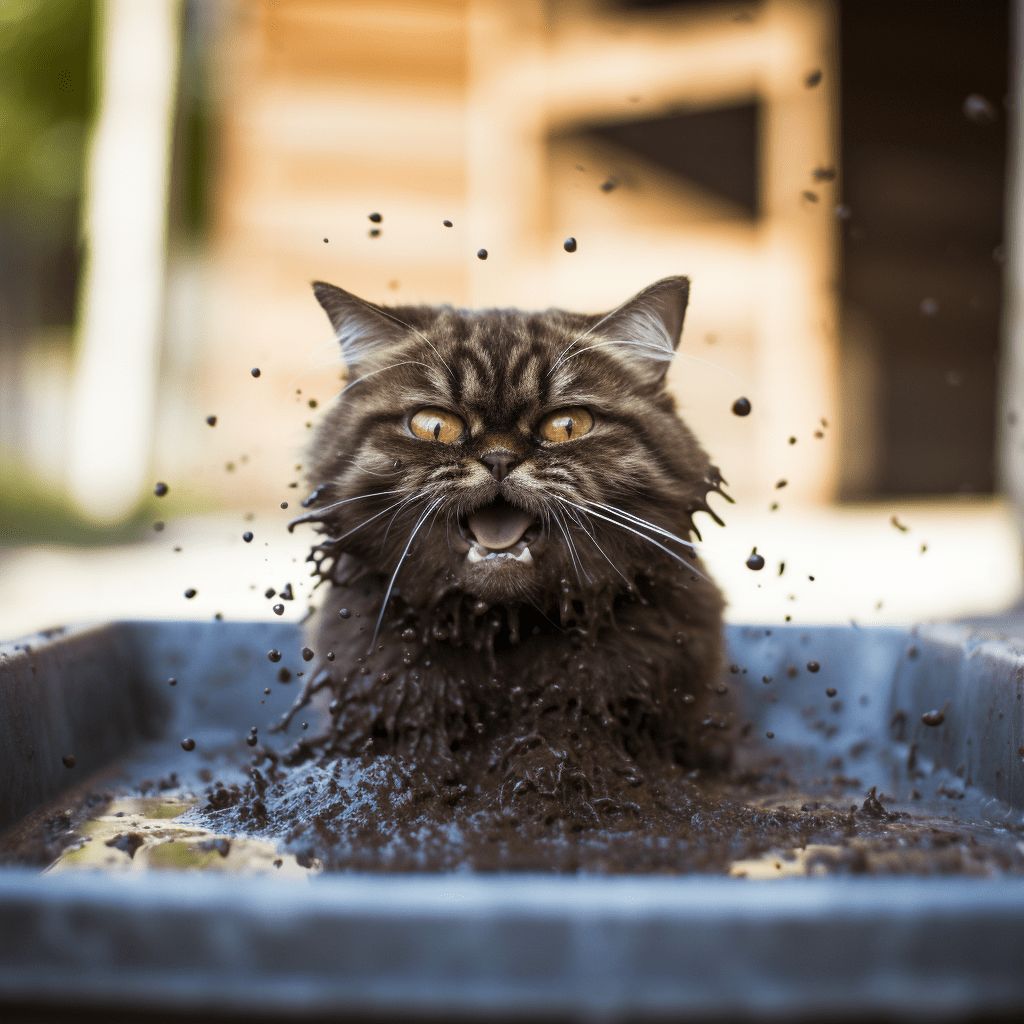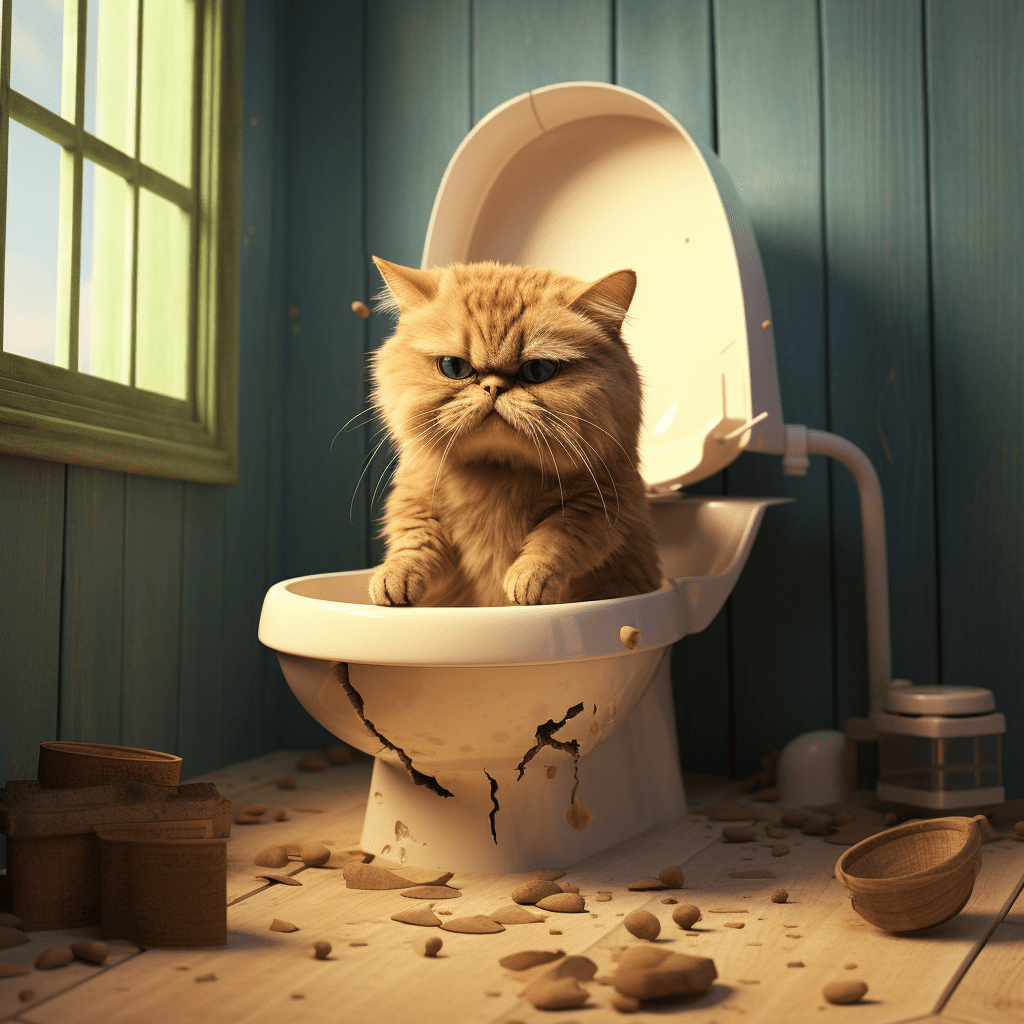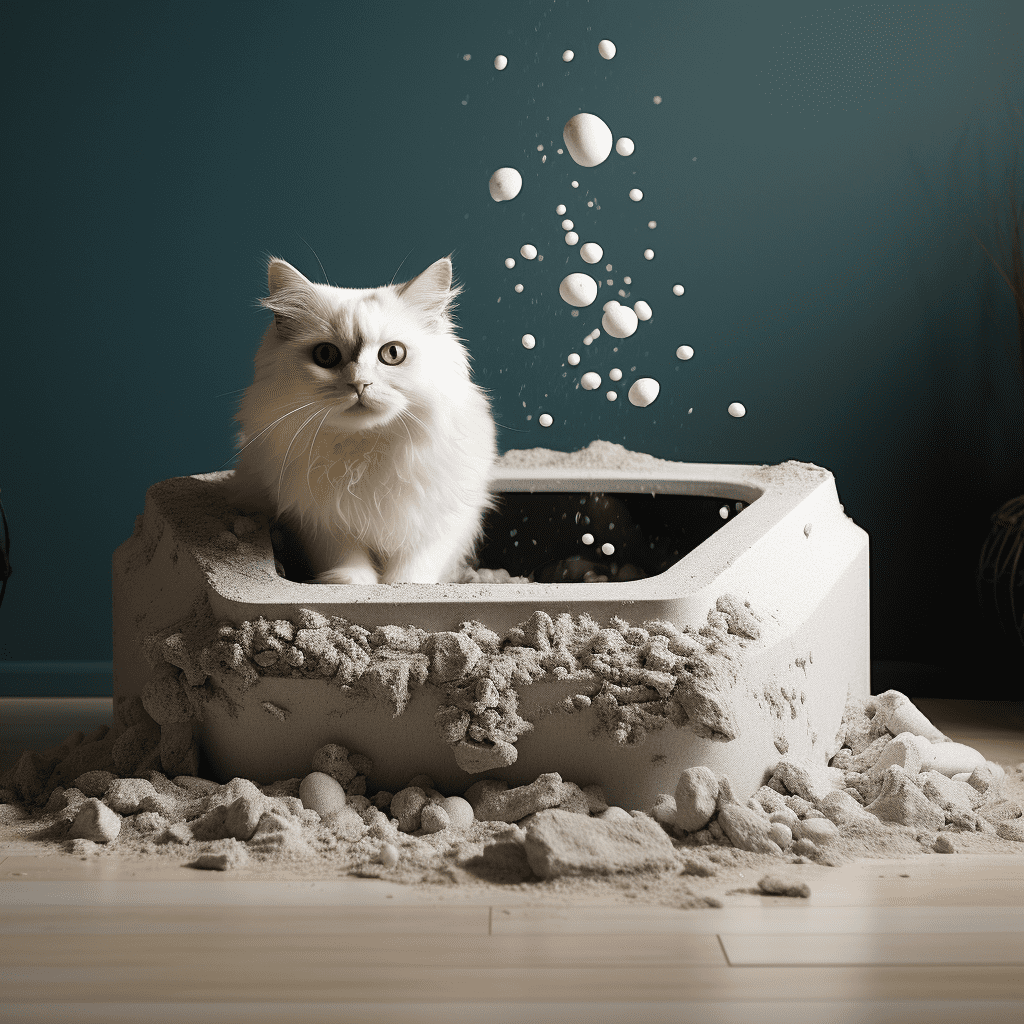What Your Cat’s Poop Says About Their Well-being
Introduction
Monitoring your cat’s health is essential, and one of the key indicators lies within their litter box. It may not be the most glamorous aspect of pet ownership, but understanding what is normal and what is not in your cat’s poop can provide invaluable clues to their well-being.

As we delve into what certain characteristics of cat feces may indicate, it’s important to remember that subtle changes can signal something noteworthy. This article will guide you through the nuances of feline fecal analysis and what it could potentially say about your cat’s health.
Recognizing Healthy Cat Poop
A healthy cat’s stool should be:
- Firm but not hard
- Deep brown in color
- Odor-present but not overly pungent
Consistency and color can vary slightly based on diet and hydration, but significant changes may warrant attention.
| Normal Characteristics | Abnormal Characteristics |
|---|---|
| Firm consistency | Extremely hard or loose |
| Deep brown | Black, red, or very pale |
| Mild odor | Extremely foul odor |
Understanding these variations is the first step toward ensuring your cat’s health is in check.
Warning Signs in Your Cat’s Poop
When inspecting your cat’s stool, alarm bells should ring if you observe:
- Blood — may indicate inflammation or injury within the digestive tract
- Mucus — could suggest colitis or other inflammatory conditions
- Persistent diarrhea or constipation — potential signs of digestive disorder
If you encounter these warning signs, it’s advisable to contact a veterinarian. Early intervention can make a substantial difference in your cat’s health outcomes.

The Impact of Diet on Fecal Health
It’s no revelation that a cat’s diet is a pivotal element in their digestive and overall health. A balanced diet should lead to healthy bowel movements, whereas an inadequate diet can cause issues such as:
- Diarrhea
- Constipation
- Unusual odor and color
Feeding your cat high-quality food that is rich in protein and fiber can promote good digestive health. Be cautious with treats and human food, as they can disrupt your cat’s digestive system, leading to abnormal feces.
Tips for a Balanced Feline Diet:
- Opt for high-protein cat food
- Include sufficient fiber for digestion
- Avoid overfeeding to prevent obesity-related issues
Common Gastrointestinal Problems in Cats
Some frequent health problems affecting feline gastrointestinal health include:
- Inflammatory Bowel Disease (IBD)
- Hyperthyroidism
- Food allergies
Preventative measures such as regular vet checks and an appropriate diet can help manage or avoid these conditions. However, if symptoms persist, professional medical intervention may be necessary.
Prevention and Management Strategies:
- Regular veterinary check-ups
- Tailored diet plans
- Probiotic supplements to support gut health
Parasites and Your Cat’s Poop
Parasites such as roundworms, tapeworms, and the protozoan Giardia can be identified through stool examination. Signs of parasites include:
- Visible worms in stool or around the anus
- Unexplained weight loss
- Change in appetite
Immediate treatment and prevention of future infestations are imperative for maintaining your cat’s health. This often involves deworming medications and maintaining clean litter boxes.

Importance of Hydration for Digestive Health
Water intake is crucial for proper digestion in cats as it helps to keep the stool soft and prevents constipation. Some cats may need encouragement to drink more water, which can be achieved by:
- Providing fresh water daily
- Using a cat fountain to stimulate interest
- Incorporating wet food into the diet
Encouraging your cat to drink more water is a simple yet vital step toward optimal digestive health.
Other Observables: Frequency and Odor
Both the frequency of bowel movements and the odor emitted from cat poop can indicate health issues:
- Infrequent stool may suggest dehydration or blockages
- Overly foul-smelling stool can be an indicator of infections or dietary problems
Changes in these factors should prompt a conversation with your veterinarian to rule out any serious conditions.
Home Inspection of Cat Poop: Do’s and Dont’s
Do’s:
- Wear gloves when handling cat waste
- Clean the litter box regularly to monitor changes
- Keep an eye on the stool’s consistency, color, and presence of foreign objects
Don’ts:
- Avoid direct contact with feces
- Do not ignore persistent changes in your cat’s stool
- Don’t delay seeking veterinary advice if concerned
Keeping a Poop Diary: Tracking Changes Over Time
Maintaining a poop diary for your cat can assist both you and your veterinarian in identifying patterns or changes that may be symptomatic of health issues. Record details such as:
- Stool color and consistency
- Frequency of bowel movements
- Any visible changes in appearance
Tracking this information over time can reveal trends or anomalies in your cat’s health.
Conclusion
Being attuned to your cat’s stool can provide significant insight into their health. Regular inspection, maintaining a balanced diet, and proactive veterinary care are fundamental to ensuring your furry friend remains in good health. It’s our duty as responsible pet owners to monitor these vital signs and act upon any irregularities with diligence.
By understanding what your cat’s poop says about their well-being, you can catch potential health issues early and give your cat the best chance for a long and healthy life.
Key Takeaways:
| Key Point | Action Items or Notes |
|---|---|
| Stool normality | Firm, deep brown, mild odor |
| Warning signs | Blood, mucus, unusual consistency |
| Dietary Impact | High-quality, balanced diet |
| Health issues | Be aware of common gastrointestinal problems |
| Parasites | Treat immediately and ensure clean living conditions |
| Hydration | Encourage water intake |
| Observables | Take note of frequency and odor; changes may signal problems |
| Home inspection | Practice safe and regular stool examinations |
| Poop diary | Keep records to note persistent changes and discuss with vet |
We hope this article has been informative and encouraging in the proactive monitoring of your cat’s health. Remember, your pet relies on you to be their health advocate, and paying attention to signs from their litter box is a key part of that responsibility.
FAQ: Understanding Your Cat’s Poop and Health
-
What does healthy cat poop look like?
- Healthy cat poop should be firm (not hard), deep brown in color, and have a mild, not overly pungent smell. Slight variations can occur, but major changes in these attributes should be noted.
-
How can diet affect my cat’s stool?
- A cat’s diet has a direct impact on their stool. High-quality, high-protein diets with sufficient fiber are conducive to healthy digestion, while treats and human foods can cause disruptions leading to abnormalities such as diarrhea or constipation.
-
When should I be concerned about changes in my cat’s poop?
- Be concerned if you notice blood, mucus, a significant change in consistency (too hard or too loose), or persistent changes in color and odor. These could be signs of digestive issues or other health problems and should prompt a call to your veterinarian.
-
What should I do if I find worms in my cat’s stool?
- If you find worms in your cat’s stool, contact your veterinarian immediately for appropriate deworming treatment and advice on preventing future infestations.
-
Could frequent diarrhea be a sign of a serious health issue?
- Yes, frequent diarrhea can be indicative of serious health issues like gastrointestinal infections, inflammatory bowel disease, or allergies. It’s essential to consult with a vet if diarrhea persists.
-
How can I encourage my cat to drink more water?
- To encourage your cat to drink more water, ensure fresh water is available at all times, consider using a cat water fountain to attract them to drink more, and include wet food in their diet.
-
What is the significance of maintaining a poop diary for my cat?
- A poop diary helps in tracking and identifying consistent or concerning changes in your cat’s bowel movements over time. This information can be very useful to veterinarians in diagnosing and treating potential health issues.
For more information on cat health, visit our dedicated page at here.
